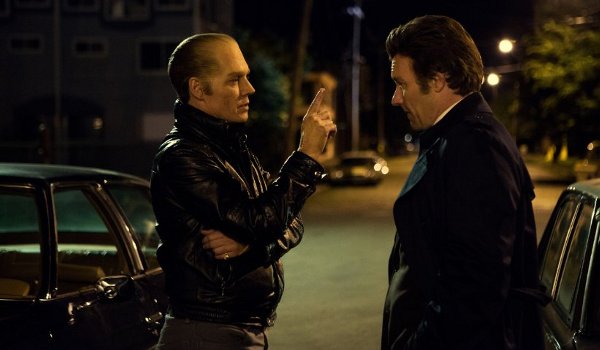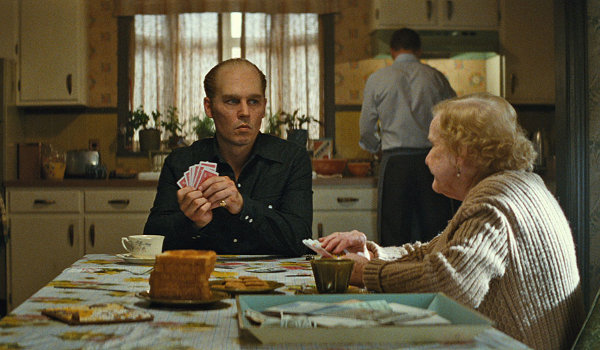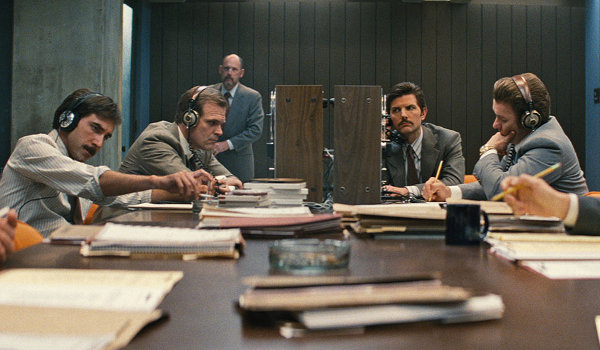- Title: Black Mass
- IMDb: link

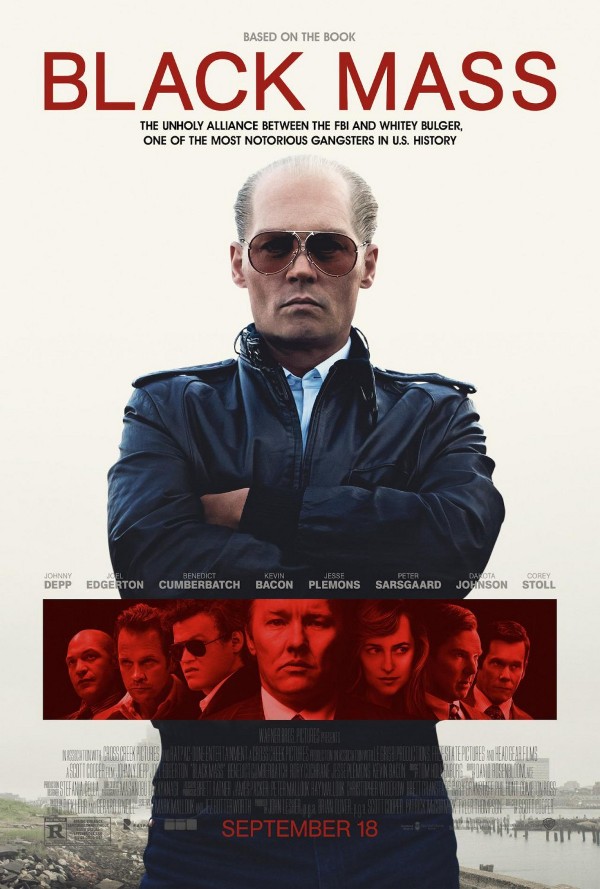 Black Mass is a semi-successful film highlighting the amazing story of Irish-American mobster Jimmy “Whitey” Bulger (Johnny Depp) and his rise to prominence in South Boston in the 70s and 80s as the head of the Winter Hill Gang in large part thanks to his role as an FBI informant for Agent John Connolly (Joel Edgerton). What should be a thoroughly engrossing character study becomes a by-the-book gangster movie that entertains but doesn’t due justice to the source material.
Black Mass is a semi-successful film highlighting the amazing story of Irish-American mobster Jimmy “Whitey” Bulger (Johnny Depp) and his rise to prominence in South Boston in the 70s and 80s as the head of the Winter Hill Gang in large part thanks to his role as an FBI informant for Agent John Connolly (Joel Edgerton). What should be a thoroughly engrossing character study becomes a by-the-book gangster movie that entertains but doesn’t due justice to the source material.
Screenwriters Mark Mallouk and Jez Butterworth adapt the non-fictional account of events from Dick Lehr and Gerard O’Neill’s book that is highlighted by Depp’s performance under heavy make-up as the charismatic violent sociopath. There’s certainly more to the story than we get here, and I do have to wonder how much director Scott Cooper left on the cutting room floor. I expected far more about Bulger’s rise to power, which we hear the FBI talk about constantly but we don’t see evidence of over the course of the film. The filmmakers’ focus on the lives of Whitey Bulger and his closest associates leaves the larger canvas left half finished.
I give Cooper credit for staging realistic low-key and up-and-personal murders which play well on camera, but the film glosses over the most important murder of the entire movie (which doesn’t even take place on camera) leaving questions about an important character’s culpability in the crime. At the same time Black Mass also has a tone problem. There are multiple sequences in the film that are meant to be menacing but instead come off as unintentionally funny undercutting much of the tension in crucial scenes (as when Bulger confronts Conolly’s wife). The result is multiple sequences that play more like knock-offs of American Hustle, complete with a disproving agent that smells something fishy, than a serious drama.
Cooper stacks the film with a talented supporting cast that doesn’t stand-out. Kevin Bacon, Peter Sarsgaard, Rory Cochrane, Adam Scott, Julianne Nicholson, Bill Camp, Juno Temple, and others are all cast in relatively thankless and unimportant roles that require the bare minimum from each and could just have easily been staffed by unknowns. I’m a big fan of Benedict Cumberbatch but he’s miscast here as Whitey’s more respectable brother and State Senator who the film has little interest in truly understanding.
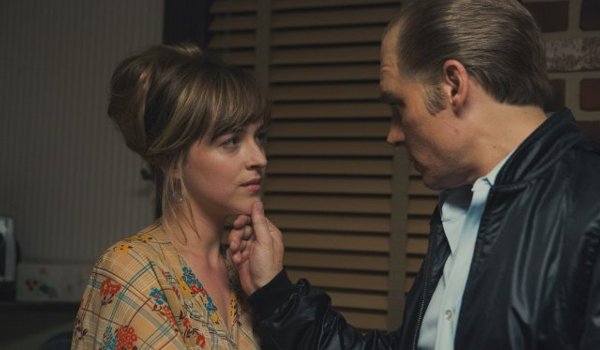
Depp’s performance is of course the real jewel in the film. His transformation into Whitey is complete and the look of the character, complete with his unnatural piercing eyes, certainly helps sell the man’s innate intensity. The only one who manages to steal a scene from Depp is, surprisingly, Dakota Johnson as the mother of Whitey’s son. And she does it twice. The first involves the three at a dinner table as she disapproves of Jimmy’s advice to their son and the second highlights both the depth and cruelty of of the mobster in a far darker scene that takes place in a hospital cafeteria later in the movie. Both sequences are imbued with a level of real emotion that is too often lacking in the rest of the film while teases us with what might have been.
While Bulger’s motives are rather straightforward throughout the course of the film, the script never really delves into the motives of Connolly. He’s necessary to tell Whitey’s story, and his friendship with the mobster certainly leads him down a destructive path, but the script isn’t invested in understanding or making sense of the man’s actions. How much of his bending the rules and breaking the law was hero worship? How much was a strive for his own glory? And how much was covering his own ass? Much like the events themselves, I think Connolly’s motives get a tad too streamlined in order for the movie to make its two-hour running time work while the truth was likely far more complex.

